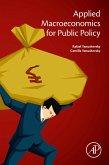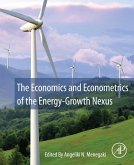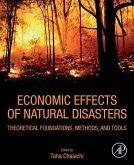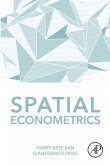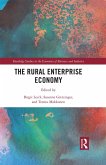Dieser Download kann aus rechtlichen Gründen nur mit Rechnungsadresse in A, B, BG, CY, CZ, D, DK, EW, E, FIN, F, GR, HR, H, IRL, I, LT, L, LR, M, NL, PL, P, R, S, SLO, SK ausgeliefert werden.
"This remarkable study shows how strategies to mitigate climate change can also address macroeconomic imbalances and dualistic development. With a detailed analysis of Turkey, the authors show how a more equitable development trajectory could reduce CO2 emissions and at the same time expand income and employment. Essential reading for anyone concerned with development in an increasingly fragile planet." --Jayati Ghosh, Jawaharlal Nehru University, and International Development Economics Associates
"An excellent reading on the dual characteristics of the economies and the related methodological challenges and approaches for addressing 21st century questions on the 'greening' of the economies." --StellaTsani, Athens University of Economics and Business
"This pioneering study of the Turkish economy develops a multi-sectoral, multi-regional model to capture its structure and dynamics to analyse and advocate alternative policies for regional development and mitigation of environmental pollution and climate change.?It argues that only indigenous industrialization, development and energy strategies offer a viable alternative to the market dynamics likely to exacerbate social inequalities, exclusion and unrest." --Jomo Kwame Sundaram
"In the current context of climate change, Acar, Yeldan, and Voyvoda have written an important new study on environmental policy, energy use, and green development. Using general equilibrium discipline, they propose a coherent strategy within a regional development programme which illustrates that Turkey can achieve both mitigation of GHG and C02 emissions and expansion in income and employment within a more equitable and sustained development path. This remarkable research will be of interest to graduate students, academics, applied researchers and policy makers in Turkey and other developing countries that are confronted with a dual economy of an advanced modern sector generating and sustaining characteristics of a poverty trap in the traditional sector." -Patrick Georges, University of Ottawa



